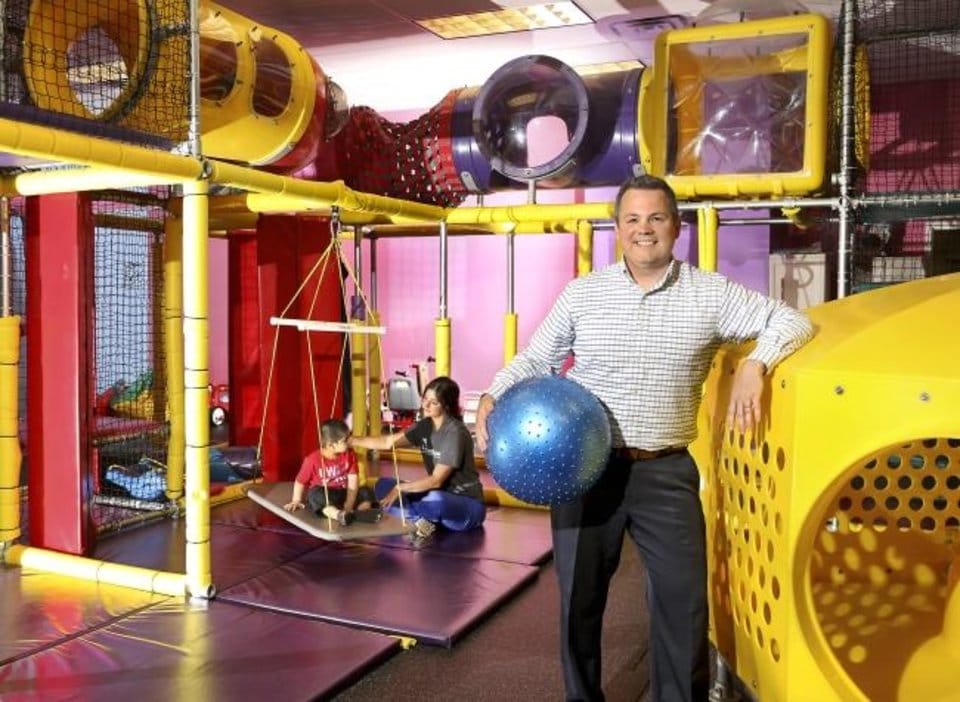When talking with bilingual SLPs, especially those who just got out of bilingual speech pathology programs, you get the sense that a lot of us are disillusioned by how much we thought our second-language abilities would influence our paycheck. True, it is SO easy to find a job. But once you have that job, how much does it differ from professionals without a second-language skillset?
Do bilingual SLPs make more money?
You can see that the honest answer to this question is no. Most licensed SLPs get paid approximately the same, regardless of their certifications and skills. However, some bilingual SLPs are easily finding ways to increase their income that fit into their current schedule. In this essay we are going to share seven ideas to use your language to serve more children or adults.
1. Additional Bilingual Certifications
We often get emails from new students asking whether they should get a bilingual certificate for speech pathology or which bilingual speech pathology programs at the university level they should attend to become “certified.”
The truth is, a Bilingual Certification Program for SLPs doesn’t exist (aside from programs required by a few states for licensure) and being certified really wouldn’t change your income. Think of it in terms of being certified in a type of stuttering intervention or ABA therapy. It will enhance your ability to be hired but you won’t necessarily be paid more.
What is needed? You need to be able to 1) speak another language proficiently and 2) show that you can treat bilingual clients effectively with your second language. What that means is that you need a really great reference from a prior position or your school showing that you are capable of doing these two things. If you are wanting to become a top-notch service provider, we created the Certificate in Cultural and Linguistic Diversity which will give you this foundation. We are proud to say that this course is required by some clinics in the United States for new employees.
2. Learning Another Language
We have met many professionals who grew up in a home where they had exposure to a second language or had extensive college learning and study abroad experiences.
BUT, they don’t say claim to be a bilingual speech-language pathologist and may feel nervous to treat bilingual clients because their language skills feel rusty. If this is you, there are ways that pseudo bilingual SLPs are upping their skills and crossing the line into full bilingual-dom.
Study abroad
Yes, you can leave the country, have a blast, and come back bilingual. Think of it as a professional gap year or semester. It’s almost better than studying abroad in college because now you have a career and know exactly what you need to practice and say.

Better yet, you can volunteer and work abroad. Our colleague Katherine Johnson knocked the rust off of her college Spanish by going to Guatemala to study. Not only did she come back an excellent bilingual practitioner, she made connections with an orphanage and went back to work down there. You have to read this: How Speech Pathologists Change Lives
Friends of ours who run the Therapitas network of clinics in Oklahoma were in need of bilingual speech therapists so they PAID for new hires to study in Central America to beef up their skills. So…maybe your current employer will give you a summer off and a bonus when you get back.
Take an online or local university class
The sky is the limit nowadays with what you can learn online or at your local collage. For less than what you probably spend on coffee each year, you can meet some great people and take a class. You can also get a tutor anywhere in the world! How fun is that?
Brush up on your Spanish
Spanish is the most studied and most spoke language. If you are in need of a refresher or need vocabulary, check out DashboardSpanish.com. It is a vocabulary-based learning system that is quite fun, affordable, and easy to add to your schedule. We contacted the creator of DashboardSpanish and they gave us a 20% discount for anyone coming from Bilinguistics. Just use this code when you sign up: BILING20
3. Afternoon Contracts in Clinics
If you are a bilingual school-based SLP, you might have some lucrative options on your drive home. Clinics are packed between 3-6PM and typically have a continual need for bilingual speech therapy or evaluation services. In our clinic we hire school SLPs to pick up afterschool clients and even bring in more bilingual SLPs in December and May when work in the schools picks up.
Put your home address and/or commute into Google Maps and search Speech Therapy Near Me. You could additionally add your spoken language(s) to the search. Another way to do it is to find pediatrician offices that work with children who speak your native language and ask them: “Where do you refer Spanish-speaking kids?”
Whatever they say is a gold mine of information. They will either give you a name of a clinic that probably needs your help. Or they will say: “We don’t have anyone to refer to.” You can take that information to the clinic you want to work at and say: “I spoke with Dr. Peterson’s office. They said that they have Spanish-speaking kids and no where to refer them. Do you market to them?” That way, you can instantly create your caseload.
4. Contract Evaluations for Schools and Clinics
Not all states provide intervention in languages other than English. However, bilingual speech language evaluations are one area that will always need your bilingual skills.
For some SLPs, evaluations are more enticing because they pay more, are single events that don’t need to be scheduled weekly, and they can be fit into their schedule more easily. Schools often have a need for evaluations for the following reasons:
- Independent evaluations are needed when parents contest the results of a school-based evaluation
- A native speaker or interpreter of a language that is not present on their staff is needed
- SLPs are out on maternity leave
- Workloads surpass what their staff can cover
- Summer play-based and regular evaluations are needed
Pro Tip #1: How do I offer my bilingual SLP services to school districts?
School-based SLPs are a pretty tight-knit yet kind group. It isn’t always clear by looking at a website as to who you should talk to or who you should contact.
One of the best ideas I have seen is to use your bilingual skills and present to the staff. Contact the districts around you, put together a 15-20 minute presentation on evaluation or intervention considerations for people working with diverse students. You can check out our free downloads for Therapy and Evaluations or even Referrals to get started. That way you can present for free and get an idea of the needs of the district.
Pro Tip #2: Find your Avatar
If you are thinking about conducting school evaluations, that fastest way to get started is to find someone else who is already doing them. Firstly, it will let you know if there is a need. Secondly, they can let you know what you need to do to get started. This can save a ton of time because school districts often require you to fill out certain paperwork, designate your business as a certain type, or bid for the work during a time period. If you are bilingual and they are mono-lingual, you won’t be competing and can actually pass each other work.
5. Teletherapy
Teletherapy has changed our world hasn’t it? Gone are the days when it was relegated to discussions about serving geographically difficult areas such as American Indian Reservations and populations in the Northern Territories. With teletherapy now being more accepted, you have access to your entire region or state.
This is a really important salary-related topic because regions with high needs pay a lot more for bilingual therapy services. Secondly, if you speak a language from a smaller language group, you may not have a lot of speakers of your language in one area.
Using Texas as an example, you could be licensed in Texas, live anywhere, and serve Spanish-speakers along the border. You could simultaneously serve Mandarin, Vietnamese, Arabic, you-name-it speakers in Dallas and Houston.
6. Joining an Established Bilingual Team
On social media and SLP blogs it is common to find bilingual SLPs inquiring about their bilingual speech pathologist salary and how it compares to others. The truth is that most bilingual therapists are not compensated any differently than monolingual SLPs. However, many districts and clinics offer bilingual stipends, bonuses, and pay increases.
The difference often comes down to three things. The bilingual SLP:
- Never asked
- Hasn’t looked around to see what neighboring employers are paying
- Isn’t working for someone that understands how much more work has to be done as a bilingual speech service provider.

I spoke with Edwin Brown of One Therapy Networks about this. They have clinics throughout Oklahoma and are helping bilingual SLPs get on their feet with their own clinic throughout the United States. He shared that the amount of effort that they put into finding experienced bilingual speech clinicians makes retention with fair pay even more important.
7. Start Your Own Practice
And lastly, the best way to ensure that you get the highest pay for your bilingual services is to pay yourself. But alas, this is really daunting. I know that most bilingual speech therapists never thought about running their own clinic. If they have thought about it, the idea of getting up and running can be really overwhelming. We have been running a clinic for over a decade and know how tough it is. If you are looking to getting up and running and want some feedback, SLPs are joining our SLP Impact Platinum Membership and then doing a consultation to work their their brainstorming and ideas. Check it out.




